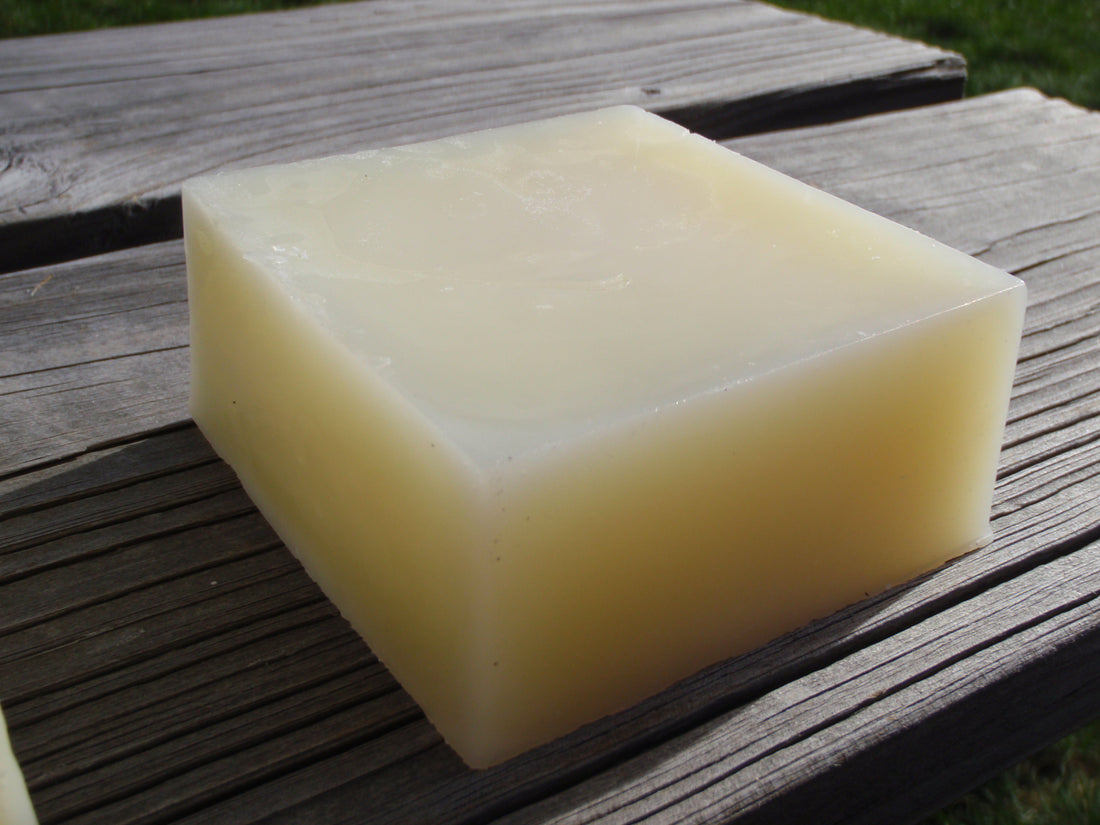
Are tallow and lard soaps biodegradable?
Share
This is a bit of a niche topic today but I do get questions about using my soap in outdoor situations such as camping, outdoor bathing or even just in the backyard. The usual question is whether my soaps are biodegradable. The short answer is yes, they are. However, just because something is biodegradable does not mean that it is environmentally safe in all contexts.
What does biodegradable mean?
In the context of soap, biodegradable simply means that all of its components can be broken down by bacteria. Many ingredients found in commercial soaps and detergents can be environmentally harmful, such as Sodium Lauryl Sulfate (SLS), triclosan, and parabens. Many of these chemicals do not break down in the environment and either need special processing in a water treatment plant to be safe or can stay in the environment as "forever chemicals".
The good news is that Fat Chance Farm soap is biodegradable. Animal fats, lye, plant materials and essential oils can all be broken down by common soil bacteria. Does this mean you can grab a bar of soap and go have a bath in a stream on your next camping trip? Not so fast!
Even biodegradable components can have very negative effects on waterways. All soaps and detergents (including organic, all natural, biodegradable ones) contain surfactants, which reduce the surface tension of the water, negatively effecting aquatic life. Soaps and detergents also have a high pH (essential for good cleaning power), which can change the pH of a stream or lake in harmful ways.
When soap is biodegraded by bacteria in a lake or stream, it can encourage the wrong type of bacteria to proliferate, which results in lower oxygen levels and other negative effects.
How to use biodegradable soap
When you are camping or otherwise using soap outdoors, buying biodegradable soap is only half the battle, you then have to use it correctly. The best way for soap to be biodegraded is by soil bacteria, away from waterways.
Leave No Trace is an organization that promotes environmentally conscious camping and outdoor recreation. Their recommendation is to use soap at least 200 feet from waterways. Soapy water can then be disposed of either by digging a cathole to pour the water into or by dispersing it. If attracting wildlife is a concern, the cathole method is preferred! This method of disposal allows soil bacteria to break down the soap components so they never reach a waterway.
Washing dishes or yourself directly in a lake or stream is never acceptable from an environmental perspective. Soap, even if biodegradable, is still a pollutant in this context.
Soap and Hygiene
After reading this, perhaps you will be tempted to just not use soap at all on your camping trips. When you're used to indoor plumbing, tasks like hauling water from a stream or digging a hole for soapy water disposal can seem like needless chores. Unfortunately, that is a great way to get sick! And while hand hygiene can be accomplished pretty effectively with hand sanitizer, properly washing dishes and utensils is another vital part of avoiding illness.
"Wilderness-acquired diarrhea" or "backcountry diarrhea" is very common among campers. A big part of whether or not you get sick is proper water treatment, which is outside my purview as a soap maker! However, surveys also show that campers and backpackers who consistently wash their hands, dishes and utensils with soapy water have a much lower rate of gastrointestinal illness than those who only wash with soap inconsistently.
So don't forget to pack your favorite bar of Fat Chance soap on your next camping trip, use it regularly and dispose of the soapy water properly. Your gut and the environment will thank you!
Sources:
https://www.ncbi.nlm.nih.gov/pmc/articles/PMC8272010/
https://www.drbronner.com/pages/camping-with-dr-bronners?_pos=1&_sid=9652ac358&_ss=r
https://lnt.org/the-skinny-on-soap/
https://ecology.wa.gov/blog/january-2014/when-soap-and-water-are-not-a-good-thing
